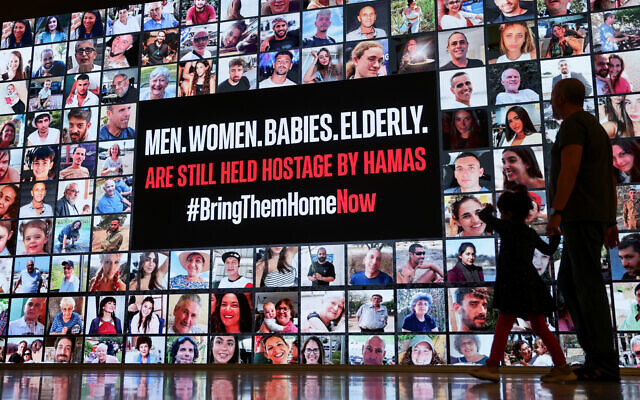



The Almagor Terror Victims Association filed a petition to the High Court of Justice on Wednesday against the Israel-Hamas hostage deal, arguing it posed a threat to Israeli security and warning that it repeated mistakes made during the 2011 Gilad Shalit deal.
The deal will see Hamas release some 50 Israeli women and children hostages, in return for which Israeli will release 150 Palestinian security prisoners, the majority of whom are males under the age of 18 held for rioting and rock-throwing in the West Bank or East Jerusalem.
In its petition, Almagor requested that the court order the government to demonstrate that the deal does not endanger Israeli lives, argued that having some but not all hostages released violated the right to equality, and asserted that the deal violates the recommendations of a government commission on the issue of returning hostages.
It is widely expected that the petition will be rejected by the High Court, as it has rejected all such petitions in the past, including the Shalit deal, on the grounds that its purview does not extend to matters of security and diplomacy apart from extreme situations.
In Almagor’s petition, the organization requested that the court delay the implementation of the deal, claiming it violated the terms of the Shamgar Commission report on returning captives, partially published in 2012, which stipulated that only a small number of prisoners held by Israel can be released per Israeli captive being returned.
The ratio of Israeli hostages to Palestinian prisoners in the current deal is one to three, much lower than other hostage agreements such as the Shalit deal, in which the single Israeli soldier was exchanged for 1,027 Palestinian prisoners.
One key argument Almagor made in its petition was that the heads of the army and other security services approved the Shalit deal and said that it did not pose a threat to Israeli security.
Terrorists released in that deal did, however, go on to perpetrate numerous terror attacks against Israel, including current Hamas leader Yahya Sinwar, who oversaw the preparations and planning for the October 7 atrocities.
Almagor noted on Wednesday that the High Court, in response to its petition against the Shalit deal, described the organization’s argument that the exchange posed a threat to Israeli security and could encourage further hostage taking as “the most serious claim” in the petition against the deal.
It said that defense officials at the time had “gambled” with Israeli security and that “their deeds led to the bloodbath of Israeli citizens and security forces.”
It asked the court to insist that the government demonstrate that the current deal does not endanger the lives of Israeli civilians and those of IDF soldiers held by Hamas.
Additionally, Almagor asked the court to halt the deal on the basis that the government “does not have the right to discriminate between blood and blood,” arguing that by agreeing to a deal in which many hostages are being left behind it is violating the right to equal treatment derived from Basic Law: Human Dignity and Liberty.
“If the government is deciding on a deal to release hostages, it must return all of them down to the last one within the framework of the deal — otherwise it would deal a fatal blow to the principles of equality, when we are talking about equality in the right to live,” argued Almagor.


